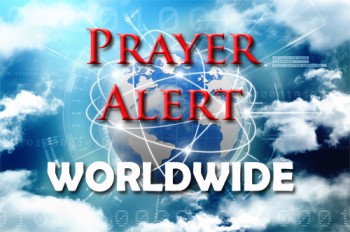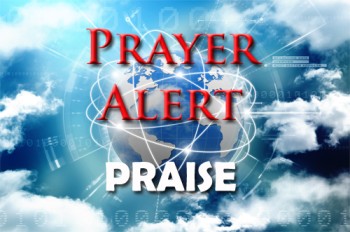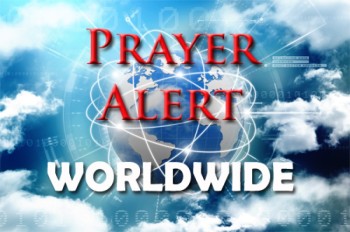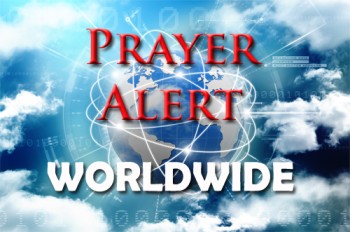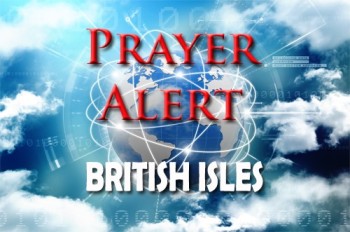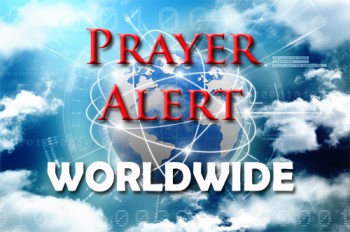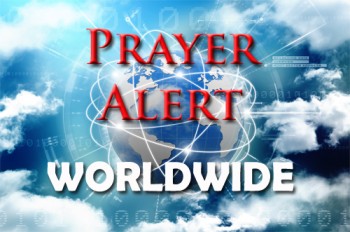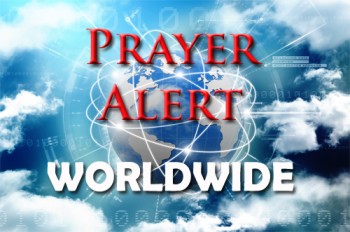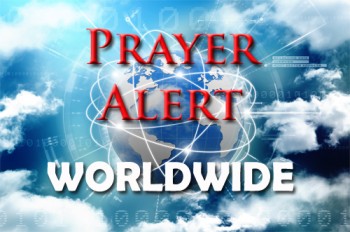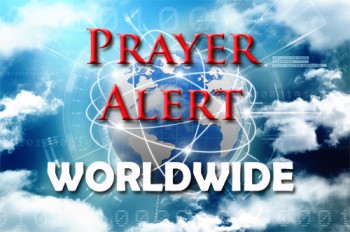Displaying items by tag: DRC
DR Congo: UN denounces massacre
The UN’s peacekeeping mission in the Democratic Republic of the Congo has denounced the killings of fifty villagers by M23 in the conflict-wracked east, and called for an investigation to ‘bring justice’. The March 23 movement, or M23, is a Congolese Tutsi rebel group that was dormant for years. It took up arms again last November, seizing Bunagana town on Uganda’s border in June. ‘The UN said that the killings could constitute crimes under international humanitarian law, as well as violating the recent ceasefire. Denis Mukwege, a Congolese doctor who won the Nobel Peace Prize for helping rape victims in the strife-torn region, also expressed horror at reports of mass slaughter, missing people, and forced recruitment of children into conflict. Human Rights Watch said UN troops should be deployed to protect survivors. Pray that M23 is disarmed and withdraws from land it has seized as requested by the East African leaders. On 8 December the UN announced that 131 civilians had died in an attack by M23 in November. https://www.bbc.co.uk/news/world-africa-63899461
DRCongo: despair into joy
‘People were getting sick and dying a lot,’ says Sango. ‘One of my children died from diarrhoea. We could not afford medical care, we sold our mattresses, plates and clothes to pay for medicine and had nothing left to sell. ‘Our children were often ill and couldn’t go to school so we didn’t have time to farm and lost the respect of our community. Our despair turned to joy when Tearfund came and taught the importance of good toilets and washing our hands to prevent diseases, including diarrhoea. We built our first family toilet with a hand washing device. It has been three months since anyone has been ill! We have time and strength to farm and we can eat three meals a day, not just one. Our children are back at school, and after we have harvested our next crop we will buy some clothes.’
DRC: UN troops make ‘strategic withdrawal’
The United Nations peacekeeping mission in the Democratic Republic of the Congo (DRC) has withdrawn troops from the eastern military base of Rumangabo, ceding ground in the battle against the M23 rebel group. M23 resumed fighting and accused the DRC government of failing to honour an agreement to integrate its fighters into the army. The fresh clashes saw the rebel group make advances across North Kivu province. The loss of the key military base is a setback for DRC and a further blow to the security outlook in the conflict-hit east. Thousands remain displaced from the region. Kiwanja’s fall is another humiliation for the government in Kinshasa. It raises serious questions, once again, as to how an extremely small rebellion can do this on their own. UN experts found solid evidence Rwanda had been providing military aid to M23 in eastern DRC. Rwanda’s government has disputed the findings.
DRC: new Ebola outbreak
On 23 April WHO reported an outbreak of Ebola in the Democratic Republic of Congo (DRC). A patient aged 31 began experiencing symptoms on 5 April. He was sick for over a week before going to a local health facility. On 21 April he was admitted to an Ebola treatment centre but died that day. Recognising the symptoms, health workers submitted samples to test for Ebola. Now there are investigations to determine the source of the outbreak. The disease has had a two-week head start and medics are playing catch-up. The positive news is that the health authorities have more experience than anyone else in the world at controlling Ebola outbreaks quickly. By 27 April everyone had been inoculated in the province’s capital city, and over 230 Ebola contacts had been identified and monitored. Three vaccination teams will soon reach those at highest risk. See
Government: Britishvolt risks of slavery
The mining of key metals such as cobalt for car batteries has been linked to appalling working conditions amounting to modern slavery in countries such as DRC where much of the world’s cobalt is sourced. Also, environmental damage is caused by lithium extraction in Chile, Argentina, and Bolivia. Responding to news that the Government will be investing £100m in Britishvolt's new 'gigafactory' in Northumberland to boost production of electric car batteries, Amnesty International said although the news is a leap forward for British industry, offering jobs and a very meaningful opportunity for the UK to decarbonise transport in the fight against climate change, it is absolutely crucial that the Government, Britishvolt, and its investors ensure there are diligence systems in place. They must be honest and transparent about the environmental and human rights Britishvolt faces in sourcing cobalt, lithium, nickel, copper and other battery metals. See
DRC: Christian persecution
Over a dozen lives are claimed in nightly raids in the Democratic Republic of the Congo. On 1 March Italian diplomats and World Food Programme workers were killed in an attack on a UN convoy. Officials blame the Allied Democratic Forces, or ADF, for this incident - the latest in a disturbing trend. Armed groups have killed over a thousand civilians in eastern DRC since late 2019. ‘In 2021, we’ve seen mass attacks by these Muslim extremists,’ said Voice of the Martyrs Canada. There are more than 100 armed groups operating in DRC. Not all of them are Islamic, but those that are have one goal in mind. They are radical, and even though they may have lost some control in places like Iraq and Syria they’re doing whatever they can to cause destruction, particularly where a large majority of people are Christian.
DRC, Guinea: Ebola resurgence
The ministry of health declared an Ebola epidemic in the N’Zerekore region of Guinea on 14 February, following seven confirmed cases and three deaths. US government agencies are closely monitoring the epidemic, and coordinating with the Guinea government, the World Health Organisation, and other partners to provide rapid, localised outbreak control. This outbreak follows a declaration of an outbreak on 7 February by the DRC’s minister of health. The previous West African outbreak in 2014-16 killed over 11,300. The source of infection is under investigation. It is important to monitor one’s health for 21 days after travelling to an area experiencing an Ebola outbreak.
DR Congo: Christians murdered and raped in jihadi attacks
Between 20 November and 3 December, at least thirty Christians were killed, and ten young women and girls raped, in attacks on five villages by the extremist Allied Democratic Forces. Locals described scenes of terrified Christians flooding into the streets as the jihadists surrounded churches, armed with guns, clubs, machetes, swords and axes. Fourteen Christians with severe wounds are in hospital in a critical condition, and at least fifteen people were abducted. A survivor, hiding in the latrine, watched through a vent as his wife and three children were murdered. A pastor In Mayitike said the militants tried to force villagers to convert to Islam before killing them. When his family refused to convert, they shot his wife in the head and cut their four children into pieces with a sword.
Democratic Republic of the Congo: violence escalates
Father José Arieira de Carvalho, a Portuguese priest who has lived in the DRC for over a decade, reported a critical situation in the north-eastern part of the country ‘where rebel groups roam across the region, looting and murdering. Recently the Lisasa village suffered a violent attack by rebel troops, claiming at least 21 lives, including that of catechist Richard Kisusi. There are reports that a Catholic church was defiled, several houses were burned down, and a medical post was looted. Bishop Sikuli Paluku Butembo-Beni called upon UN forces stationed in the region to protect the civilian population from attacks. In view of the escalating violence, the need for protection is becoming ever more pressing. The wealth of minerals has transformed certain regions of the country into a battleground for violent factions, bringing hardship and suffering to the people. It is believed there is a conspiracy between internal and external players to obscure ruthless exploitation of natural resources (mining, oil, woodland, and land).
Democratic Republic of the Congo: turmoil, violence, pandemic
2019 saw Felix Tshisekedi elected president in disputed elections marred by violence. Ethnic tensions between Lendu and Mema saw 1,000+ deaths and another 1,300+ abducted or kidnapped, while the Ebola crisis took more lives. 2019 is being violently repeated in 2020. On 22 July authorities started cracking down on peaceful critics, journalists, and political party members using pandemic emergency measures as a pretext to curb political protests(see). Since 13 July hundreds have been demonstrating for the dissolution of parliament. This has been organised by the Catholic Church (see). Authorities are attempting to contain several health crises: coronavirus, the largest measles outbreak in the world, and two Ebola epidemics (see). Also rural violence is escalating: a Christian worker writes, ‘The route from Aru to Bunia is still not safe. If people want to reach Bunia they are accompanied by soldiers. But those who were killed last time were accompanied by soldiers who were also killed.’
